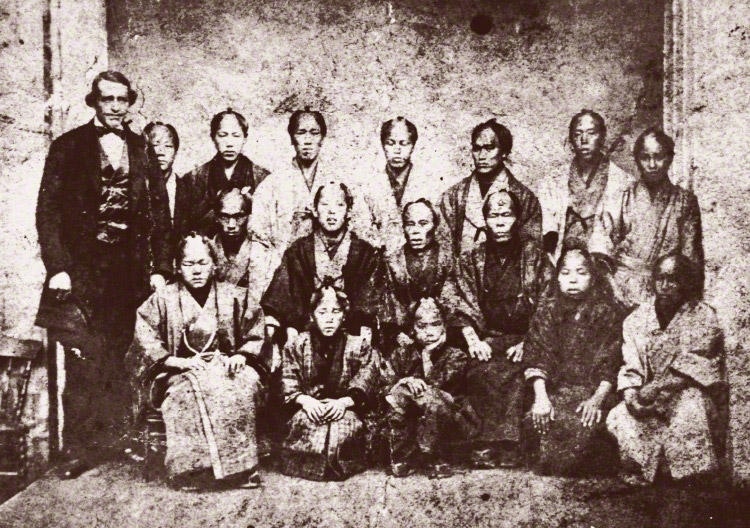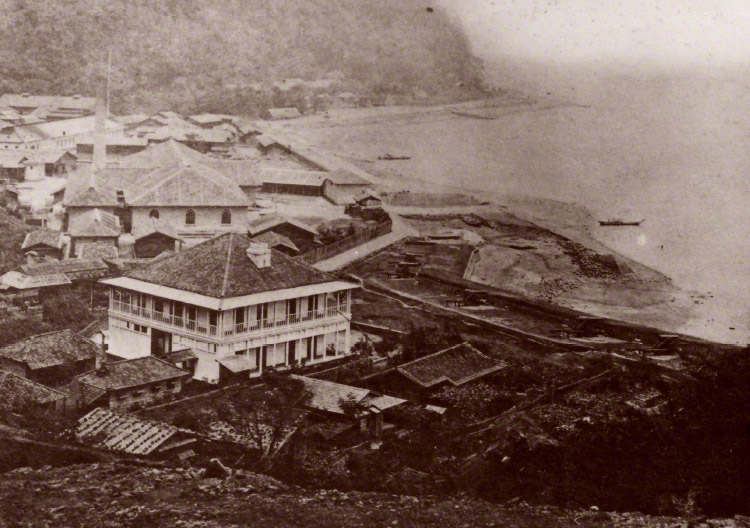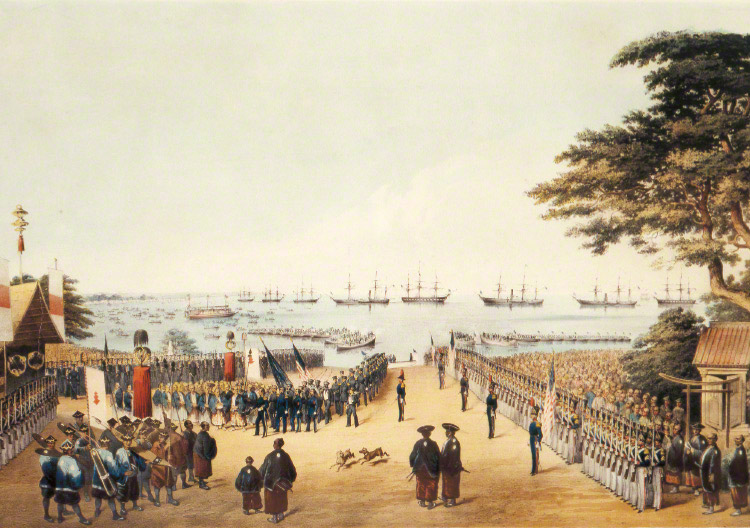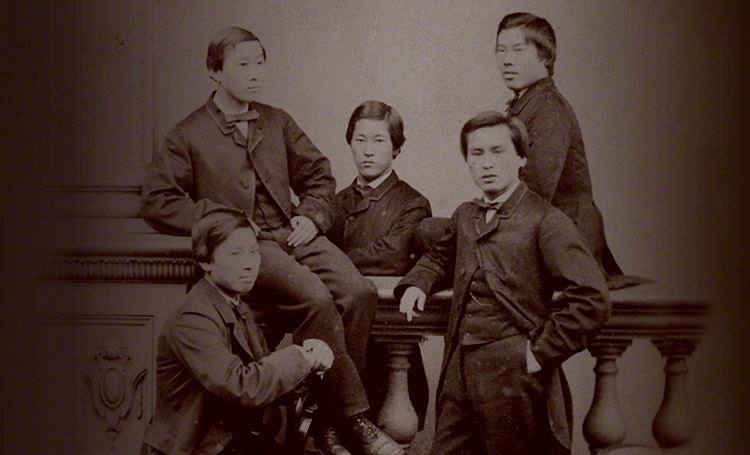Feudal Samurai’s Encounter with Western Science

Infancy under the Isolation Policy
In the mid 19th century, Japan was a highly organised feudal society that had been governed by clans under the strict control of the Tokugawa Shogunate for more than two centuries. They had a policy to regulate the free production of arms and weapons, contact with foreigners, trade and commerce and Christianity. In particular, since 1635, the Shogunate banned the construction of large vessels that could sail to the high sea, therefore Bezaisen, small wooden sailing vessels with a single mast, were the typically available ships for interisland coastal transportation services. In June 1853 four ships of the United States Far Eastern Squadron, commanded by Commodore Perry, arrived in Edo Bay. The sudden appearance of four warships, known as Black Ships, alerted the Tokugawa Shogunate to shift its seclusion policy to open the country to the outside world.

Responding to Commodore Perry’s visit, the Shogunate abolished the ban on the construction of large vessels in 1853 and planned a navy. Their aspiration was to build oceangoing gunboats and they encouraged clans to construct Western-style warships.

The Shogunate Undertook the Construction of a Navy
Lifting the ban of large vessel shipbuilding in 1853
Samurai in feudal clans sought access to Western science and technology through Dejima in Nagasaki out of fear of being colonised by the ‘Western gunboat’. Their first response was the trial and error experimentation in ironmaking for cannon and shipbuilding based on the Western textbook. In 1855, in further response to Perry, the Shogunate established Nagasaki Naval Training Institute, and in 1857 Nagasaki Foundry, a marine engine repair facility later named Nagasaki Ironworks.
With the Aspiration to Develop Industrial Japan

In 1863, five young men from Choshu (Hirobumi Ito, Yozo Yamao, Kaoru Inoue, Masaru Inoue and Kinsuke Endo) left western Japan on their clandestine voyage to the United Kingdom. Under the Tokugawa isolation policy, any attempt to leave the country was strictly forbidden. When the Choshu Five returned, they were determined to build a new Japan based firmly upon an industrial economy. They chose rapid industrialisation as the strategy to preserve national independence, free from foreign political and economic subordination.
